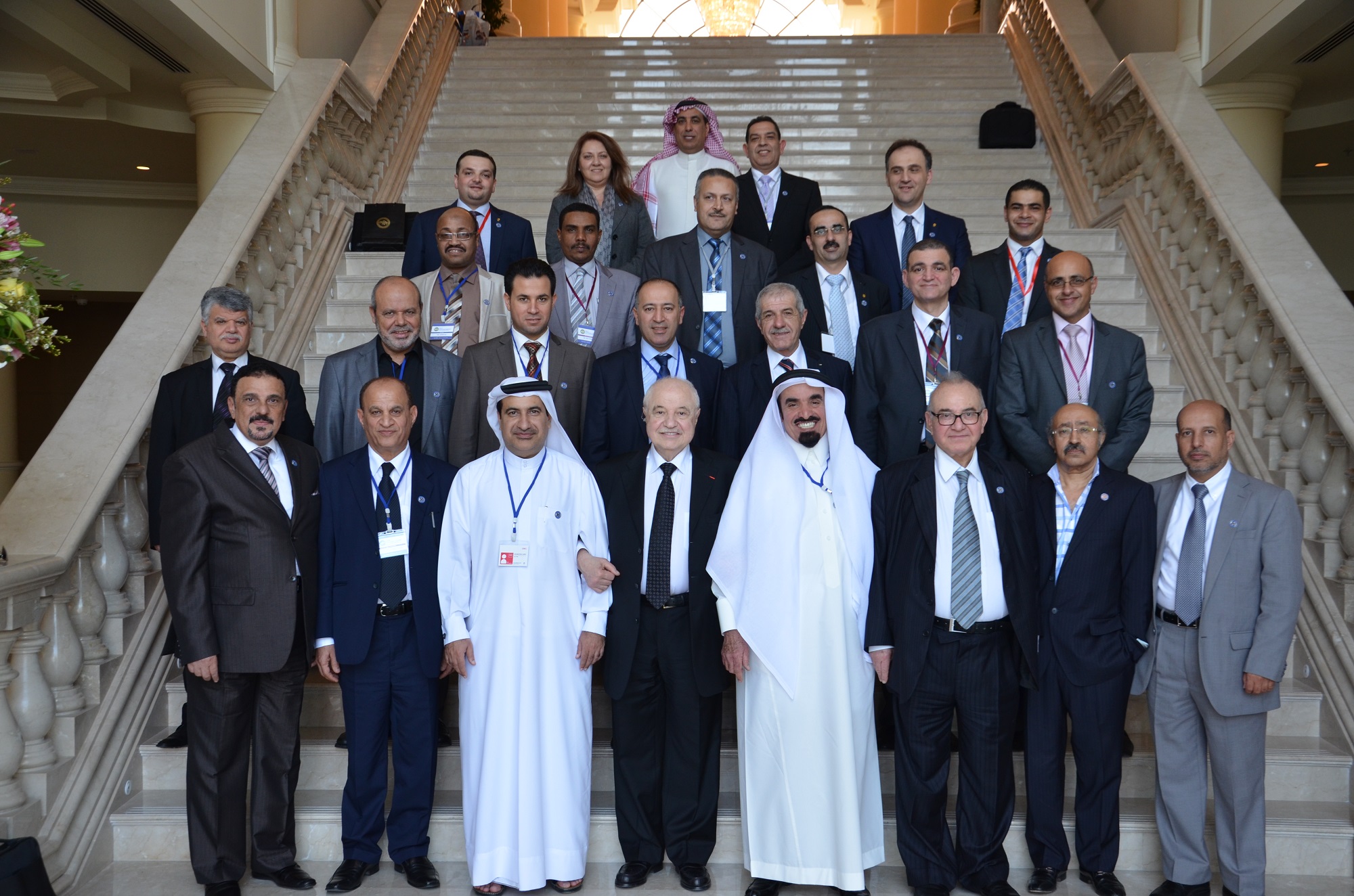Abu-Ghazaleh: The International Conference Recommends Establishing a Center in Coordination with Dubai Department of Finance to Apply IPSAS in the Arab Countries
10 Mar 2015ABU DHABI -------- March 10, 2015-------- Under the patronage of HE Sheikh Nahyan bin Mubarak Al Nahyan, UAE's Minister of Culture, Youth and Social Development, HE Dr. Talal Abu-Ghazaleh, IASCA Chairman and Founder declared the recommendations of the fifth international professional conference entitled “Accountancy as an Economic Decision Making Tool”, held by the International Arab Society of Certified Accountants (IASCA) in cooperation with the UAE Accountants and Auditors Association.
The recommendations have included a number of major decisions that would improve accounting profession in the Arab world. The recommendations read as follows:
1. Emphasize the need for all professional associations and organizations to adhere to providing the minimum required limit of continuous education, providing continuous education to their members as per IFAC's membership requirements. The professional associations and organizations shall also develop qualification and continuous education programs not only for auditing professionals, but also for all accountants working in all sectors. IASCA shall follow-up with all professional associations and organizations.
2. Hold a meeting that gather officials from IASCA, the Arab Federation of Accountants and Auditors, GCC Accounting and Auditing Organization and National Accounting Associations to develop acceptable basic conditions for accounting and auditing professions in the Arab countries, provided that each country will set further conditions commensurate with its regulations and laws like other professions practiced by professionals in Arab countries. The conference extends the invitation to the Chairman of the Board of Directors of the Gulf Cooperation Council Accounting and Auditing Organization to attend GCCAAO's conference in Bahrain which will be held next May and ask IASCA to invite Arab organizations to convene a meeting on the sideline of the conference.
3. Organize basic introductory programs for business and public sectors on the importance of accountancy as an economic decision-making tool in the fields of, investment, feasibility studies, pricing and planning in order to encounter global competitiveness, benefit from the potentials of e-commerce and value-added chains.
4. Launch information campaign for educational institutions to adopt the standard accounting material accredited by the United Nations Committee for Accounting & Financial Reporting Standards chaired by the International Arab Society of Certified Accountants (IASCA), and the membership of concerned professional accounting associations all over the world. In addition, the conference recommends academic accounting education departments in the universities and educational curricula to depend on international standards for financial reporting and other professional international standards issued by international organizations, Seek for further cooperation and partnerships between educational institutions, universities and professional organizations in accountancy sector in order to unite the efforts of both parties to ultimately improve the quality of accountancy education.
5. Given that IASCA is the sole authorized party to issue the Arabic translation of all accounting standards since 1999, it will ask for the consent of these professional international organizations, namely IFAC & IASB, to issue a copy of the Arabic translation in the Arab states in conjunction and cooperation with local professional associations and in the name of IASCA.
6. Provide permanent database on litigation against auditing firms in all states, and the learned lessons to avoid defaults contained in such litigations.
7. The conference recommends that IASCA supports the establishment of an Arab institute for internal auditing on the scale of existing international institutes around the world to be responsible for building capacities and qualification and development of standards for internal auditing management & outsourcing, provided that the institute will be independent from IASCA and work in cooperation with concerned parties.
8. Given that the Saudi Organization for Certified Public Accountants (SOCPA) has decided to obligate all companies operating in the Kingdom of Saudi Arabia to adopt and apply the International Accounting Standards starting from 2017, thus requiring the following actions to be taken:
- To conduct training courses for accountants working in companies on standards application.
- Transition to International Accounting Standards in financial & accounting status and regulations.
- IASCA to hold introductory courses on the requirements of implementing this decision for all companies operating in the Kingdom of Saudi Arabia and contacting SOCPA to study cooperation possibilities.
9. The conference recommends IASCA to focus on Arab countries in North Africa through conducting training programs and establishing professional partnerships with national associations in these states.
10. Finally, the conference recommends establishing a regional center in coordination with Dubai Department of Finance (DOF) and in partnership with IASCA with the aim of introducing International Accounting Standards in Public Sector, training on their application method and helping Arab states apply these standards in cooperation with IFAC, Financial Accounting Standards Board (FASB) and International Monetary Fund (IMF).





